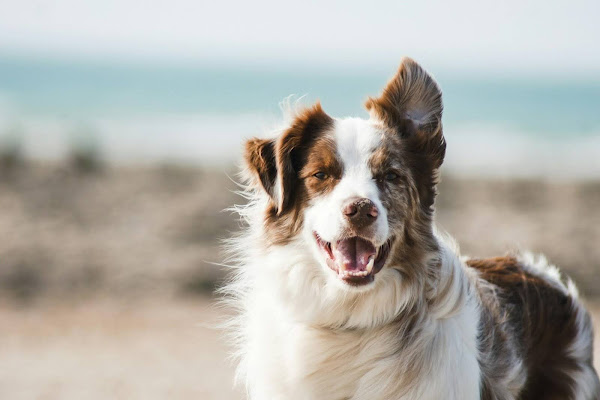Understanding Your Dog's Coat
Here are the primary types of dog coats:
Short Coat: These coats are typically smooth and require minimal grooming compared to long coats. Breeds like Dalmatians and Beagles have short coats.
Long Coat: Breeds such as Golden Retrievers, Afghan Hounds, and Maltese have long, flowing coats that require regular grooming to prevent matting and tangles.
Double Coat: Many breeds, including German Shepherds, Siberian Huskies, and Shetland Sheepdogs, have a double coat consisting of a dense undercoat and a longer outer coat. Double-coated breeds require specific grooming techniques to maintain both layers effectively.
Curly Coat: Breeds like Poodles and Bichon Frises have curly or wavy coats that need regular brushing and grooming to prevent matting and tangling.
Now that we have a basic understanding of dog coats let's delve into actionable tips for keeping your furry friend's coat healthy and shiny.
Regular Brushing
Short Coats: Brush once or twice a week using a soft-bristle brush or a grooming mitt to remove loose fur and distribute natural oils.
Long Coats: Long-haired breeds require more frequent brushing, ideally every day or every other day, to prevent matting and tangles. Use a slicker brush or a comb designed for long coats.
Double Coats: Double-coated breeds need special attention to prevent the matting of the undercoat. Use an undercoat rake or a de-shedding tool to remove loose hair and prevent excessive shedding.
Curly Coats: Curly or wavy coats require regular brushing with a pin brush or a comb to prevent matting and maintain the curls' shape.
Regular brushing not only removes dirt, debris, and loose fur but also stimulates blood circulation, which promotes a healthy coat and skin.
Bathing Routine
Use a Dog-Specific Shampoo: Choose a high-quality shampoo formulated specifically for dogs. Avoid using human shampoos, as they can be too harsh for your dog's skin and coat.
Bathe as Needed: The frequency of baths depends on your dog's activity level and coat condition. Generally, bathing once every 4-6 weeks is sufficient for most dogs. Overbathing can lead to skin problems, so consult your veterinarian for guidance.
Proper Rinse: Ensure thorough rinsing to remove all shampoo residue, as leftover residue can cause skin irritation.
Conditioning: Use a dog conditioner after shampooing, especially for breeds with long or curly coats. Conditioners help soften the coat, prevent tangles, and add shine.
Dry Thoroughly: After bathing, dry your dog thoroughly with a towel or a blow dryer in a low heat setting. Moisture trapped in the coat can lead to skin infections.
Nutrition and Hydration
High-Quality Dog Food: Choose a balanced, high-quality dog food that meets your dog's nutritional needs. Look for formulas containing essential fatty acids like omega-3 and omega-6, which promote healthy skin and coat.
Supplements: Consider adding supplements such as fish oil or flaxseed oil to your dog's diet, as they provide additional benefits for coat health and shine.
Adequate Hydration: Make sure your dog has access to clean, fresh water at all times. Proper hydration is essential for overall health, including coat condition.
Regular Veterinary Checkups
Protect from Environmental Factors
Sun Protection: Limit your dog's exposure to direct sunlight, especially during peak hours. Use pet-safe sunscreen on exposed areas, especially for breeds with light-colored or thin coats.
Weather Protection: During cold weather, provide your dog with appropriate clothing or a coat to keep them warm and protect their coat from moisture. In hot weather, ensure they have access to shade and plenty of water to prevent dehydration.
Pest Control: Use flea and tick prevention products recommended by your veterinarian to protect your dog from parasites that can affect their coat and skin.
A healthy and shiny coat is a reflection of your dog's overall well-being. By following these tips for regular grooming, proper nutrition, veterinary care, environmental protection, and exercise, you can help ensure that your canine companions' coat remains healthy, vibrant, and a source of pride. Remember that every dog is unique, so tailor your grooming routine based on your dog's specific coat type, age, and health needs. With love, care, and attention to detail, you can keep your dog looking and feeling their best!








No comments
Thank you for dropping by! I would love to hear what you thought. :)
Thanks!
♥,
Diana